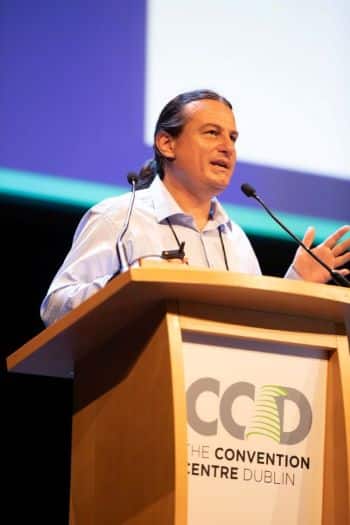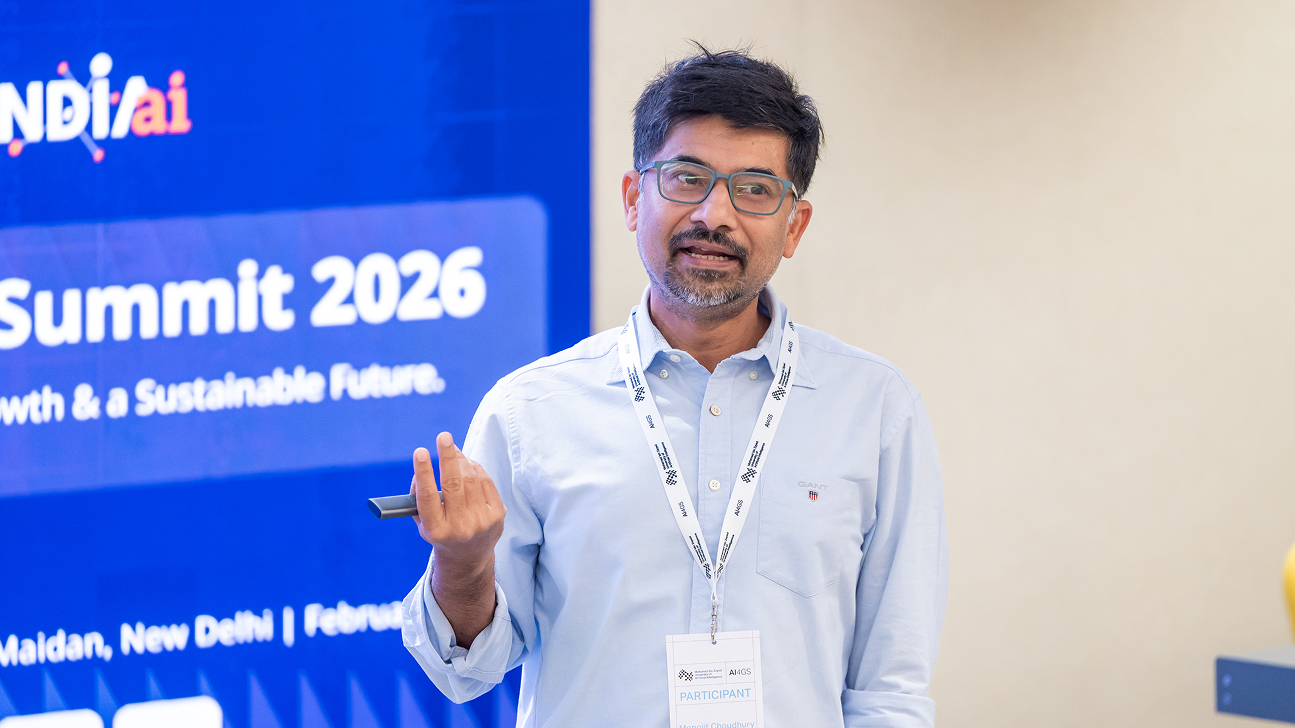On a mission to end fake news
Saturday, July 09, 2022

The Republic of Finland is known globally for snow, happiness, and more recently, their efforts to limit the impact of fake news on their population. Through massive investments in education, fake news has, by some accounts, been sidelined. It’s a phenomenon not too dissimilar to spam email — a costly problem from decades past that, thanks to machine learning as well as user awareness, has largely been relegated to the trash bin of our collective inboxes.
“Today, we still get spam, but it is not in large quantities, it mostly gets filtered out automatically, and as a result it isn’t a big deal,” said Preslav Nakov, MBZUAI professor of natural language processing. “My goal is to do the same with fake news. It’s not going to fully disappear, but I think that we can make it largely irrelevant.”
Nakov joined MBZUAI recently as professor and acting deputy department chair of the Natural Language Processing (NLP) Department. His research interests include fake news detection, fact checking systems, disinformation and propaganda analysis, and more. Four of Nakov’s most recent research papers on these topics will be presented at the 2022 Annual Conference of the North American Chapter of the Association for Computational Linguistics (NAACL).
Disinformation, memes, and more
[wps_pull-out-quote-right content=”Memes are a very powerful and common way to share humor, but increasingly they are being used for propaganda, for cyber bullying and more.” surename=”Preslav Nakov” source=”MBZUAI Professor and Acting Deputy Department Chair of the Natural Language Processing (NLP) Department”]
Nakov and co-authors dive into misinformation and disinformation in their paper “A Survey on Stance Detection for Mis- and Disinformation Identification.” What’s fascinating about this work is how the team break down the difference between information that is both false, and intended to cause harm, which is how they define disinformation.
In an ironic twist, fake news, according to Nakov, is a misleading term. “It leads people to
think of false news— whether the news is true or false — but the real problem isn’t just that some content is false, but rather that the news has become weaponized,” Nakov said.
To address this phenomenon, the researchers aim to help content systems identify what a person’s stance is regarding a piece of disinformation — whether they agree or disagree with its use — and therefore whether or not they adhere to the malicious line of reasoning being put forward. This type of assessment, when done correctly, has many implications for the monitoring and the moderation of real-time content on platforms where there is too much information for human moderators to reasonably review.
Another paper that Nakov and co-authors will present at NAACL 2022 is “DISARM: Detecting the victims targeted by harmful memes.” The paper seeks to optimize the identification of memes (pieces of viral content) that are of a slanderous nature, and further to identify who is the subject of the content.
“Memes are a very powerful and a common way to share humor, but increasingly they are being used for propaganda, for cyber bullying and more,” Nakov said.
 Public figures are perhaps the most common targets of harmful memes, and Nakov and his co-authors seek to break down the semantics of what makes a piece of viral content harmful, as well as who the victim is — a goal that might at first seem simple, but which is highly complex. Memes are often written in colloquial language and lack context or, in some cases, do not directly name the victim. Nakov and his co-authors feel that their system could be a powerful tool to combat misinformation, as well as to identify potential instances of hate speech.
Public figures are perhaps the most common targets of harmful memes, and Nakov and his co-authors seek to break down the semantics of what makes a piece of viral content harmful, as well as who the victim is — a goal that might at first seem simple, but which is highly complex. Memes are often written in colloquial language and lack context or, in some cases, do not directly name the victim. Nakov and his co-authors feel that their system could be a powerful tool to combat misinformation, as well as to identify potential instances of hate speech.
About Preslav Nakov
Prior to joining MBZUAI Nakov was a Principal Scientist at the Qatar Computing Research Institute, HBKU, a research fellow at the National University of Singapore, an honorary lecturer at Sofia University, and a researcher at the Bulgarian Academy of Sciences. He received a Ph.D. in computer science from the University of California at Berkeley supported by a Fulbright scholarship.
Nakov was named among the top 2% of the world’s most cited in the career achievement category, part of a global list by Stanford University. He also got an AI 2000 Most Influential Scholar Award (Honorable Mention) in the NLP category for (2011-2020). In 2022, Nakov served as a program committee chair of ACL 2022. He was also a senior area chair for the 29th international conference on computational logistics (COLING) and the 2nd Conference of the Asia-Pacific Chapter of the Association for Computational Linguistics (AACL), as well as a workshop co-chair of the World Wide Web conference (WWW).
Related
Teaching language models about Arab culture through cross-cultural transfer
New research from MBZUAI shows how small, targeted demonstrations can sharpen AI cultural reasoning across the Arab.....
Read MoreAI and the silver screen: how cinema has imagined intelligent machines
Movies have given audiences countless visions of how artificial intelligence might affect our lives. Here are some.....
- cinema ,
- art ,
- fiction ,
- science fiction ,
- artificial intelligence ,
- AI ,
Balancing the future of AI: MBZUAI hosts AI for the Global South workshop
AI4GS brings together diverse voices from across continents to define the challenges that will guide inclusive AI.....
- languages ,
- representation ,
- equitable ,
- global south ,
- AI4GS ,
- event ,
- workshop ,
- inclusion ,
- accessibility ,
- llms ,
- large language models ,


